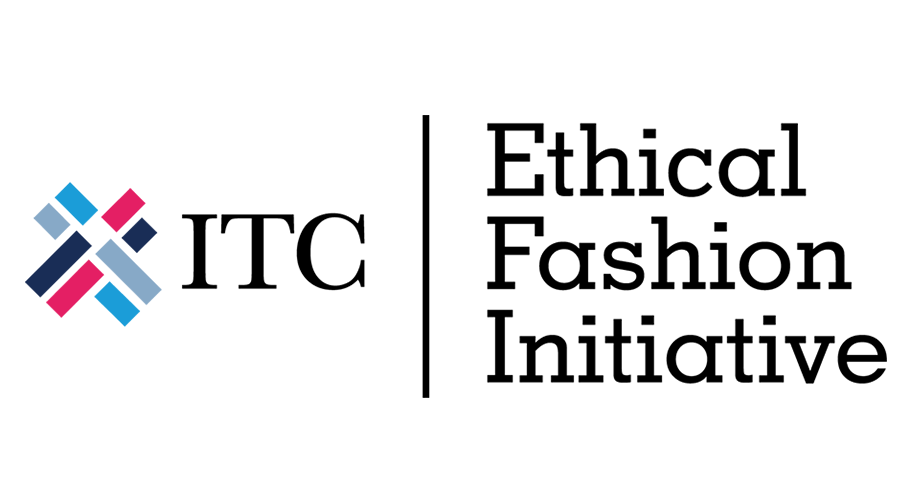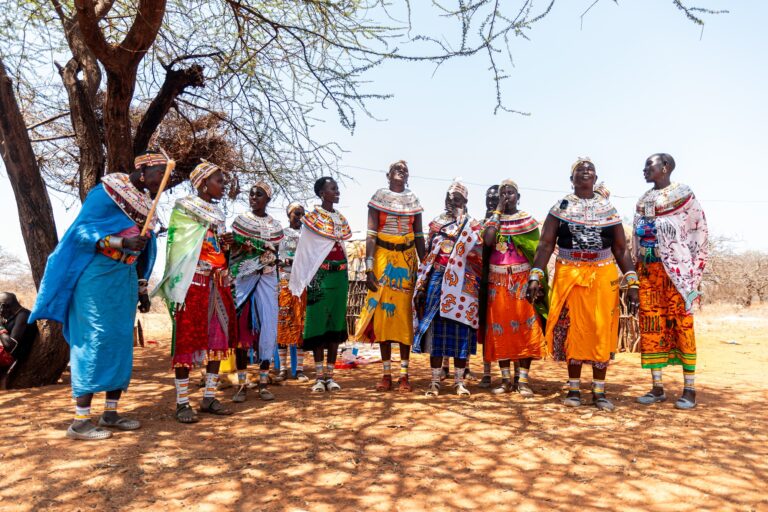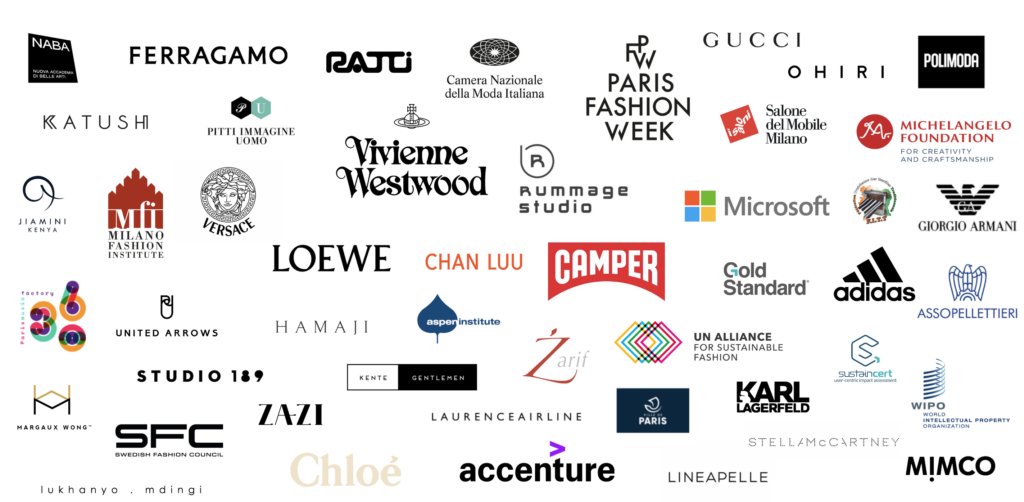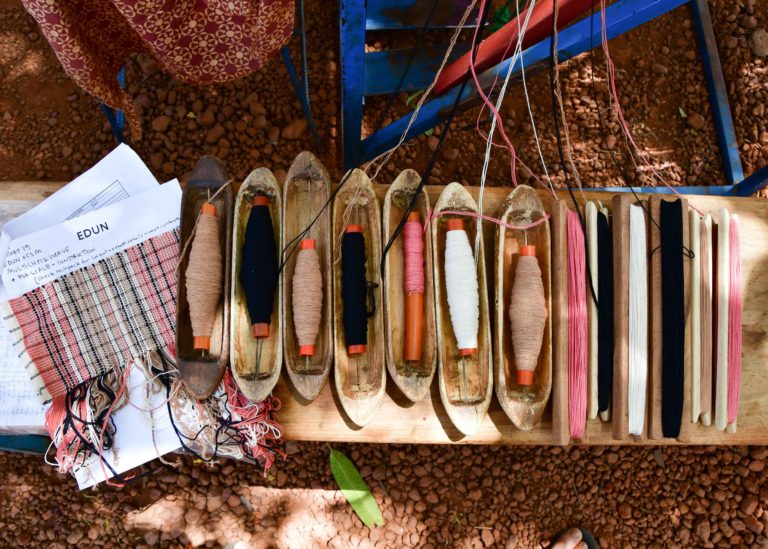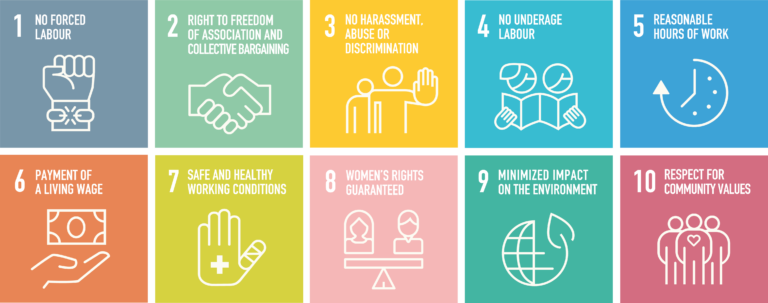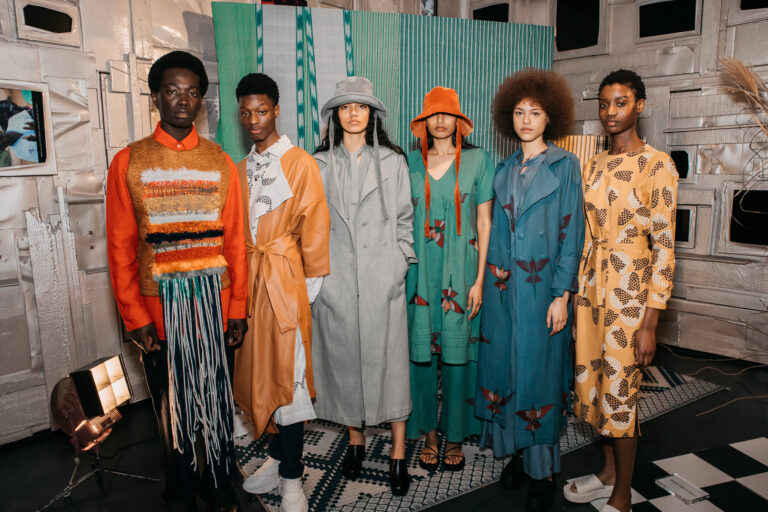In West Africa, we have three production hubs namely in Benin, Burkina Faso, Côte d’Ivoire operated by two social enterprises: CABES, headquartered in Ouagadougou (managing Burkina Faso and Benin), and STUDIO 4, based in Abidjan. Our work in West Africa specializes in a range of traditional and sustainable textiles by working with organic cotton to produce handwoven textiles, creating Mud Cloth, Indigo dyeing, Tie Dye, and Batik techniques, utilizing natural dyes, and providing comprehensive cut and sew services.
In East Africa, we are operating in Kenya through two social entreprises based in Nairobi: Tujikuze and Artisan Fashion. In Kenya, we specialize in bag making and accessories production, mastering a diverse range of artisanal skills including screen printing, basket weaving with natural fibers like pineapple, banana, raffia, and sisal, beading, deadstock transformation, crochet/macrame, and metalwork. Our long lasting experience allows us to craft unique, high-quality products supporting sustainable practices and preserving cultural heritage.


